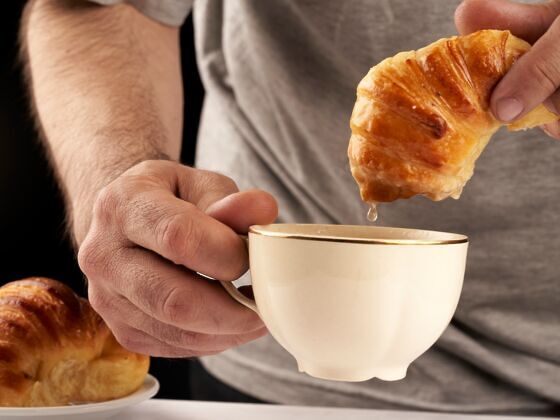1. It becomes normal to dip your breakfast food into your breakfast beverage.
The first meal of the day is taken quite seriously in La République with all manner of buttery croissants, brioche, and pain au chocolat to be had. The thing is, most breakfasts involve dipping your chosen viennoiserie into the coffee, hot chocolate, or even tea you’re drinking alongside it, especially if you’re dining with French people. While not unpleasant, it can feel a bit weird to begin with, especially if you’re more inclined to snarf some cereal before heading out.
